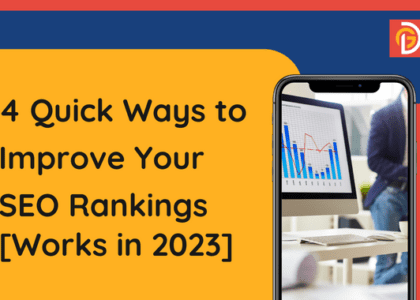There are many ways to boost your link-building campaign, but you must understand the fundamentals first. In this blog, we’ll cover five steps that will help you improve your link-building efforts and increase traffic from search engines like Google and Bing.
Step 1: Research Search Engine Optimization Keywords
The first step to a successful link-building campaign is researching keywords that have the highest search volume, but also have low competition. This means that you want to choose long-tail keywords that are relevant to your business and will help you rank for pages with more specific content. If possible, try searching for these keywords on Google or Bing and see how many times they appear on each result page. You can also use tools like Ahrefs’ Content Explorer tool, which allows you to see how many times each keyword appears across multiple websites in order to get an idea of its popularity across different industries or niches within those industries (e.g., travel).
Step 2: Create Stellar Content
Your content is the foundation of your link-building campaign. It’s what you’re going to be promoting on social media, in email campaigns, and on your website.
In this step, you’ll create stellar content that’s relevant to your audience and unique enough that it stands out among other websites’ content. You’ll also ensure that it’s useful or entertaining in some way (e.g., educational), engaging enough so people want to share it with their friends/family members/coworkers who might also benefit from reading it—and well-researched!
Step 3: Register with Quality Directories
The next step is to register with quality directories. This can be a difficult process, but it’s important that you take the time to do so if you want to build your link-building campaign.
The first thing you should do before registering with quality directories is getting yourself familiarized with their types of content and how they work. If possible, visit their website and check out some examples so that when an opportunity arises for you to submit something for consideration by one of these sites, then this information will already be stored somewhere within your brain!
Step 4: Acquire Links from Other Sites
This step is the most important one. You need to find websites that have links but don’t have many backlinks in their domain names or blog posts yet. You can do this by using a link-building tool like Ahrefs or Majestic SEO (the latter being an older version).
You will also want to use these tools when you’re looking for sites that may be able to provide you with good content but aren’t necessarily looking for links themselves. For example, if you’re writing an article about something related to your niche topic and there’s no relevant content on any other site yet, then someone else might just link out from their own blog post instead of linking back into yours specifically—which is okay! Just keep an eye out for those types of opportunities throughout your research process so that nobody gets overlooked completely during this stage of step 4.”
Step 5: Track Your Progress Using Key Performance Indicators
Key performance indicators (KPIs) are a way to measure your progress. They help you see how well your campaign is doing, and they allow you to identify areas where improvement is needed.
Here’s what some of the most popular KPIs are:
- Bounce rate – The bounce rate is the amount of visitors to any webpage that navigate of the site only after viewing one page, expressed as a percentage of the total site traffic.
- Time on page – The amount of time visitors spend on a page before leaving it or clicking away.
Takeaway:
Link building is one of the most important aspects of SEO, and it’s something that you need to track in order to determine whether or not your efforts are paying off.
In order for you to be successful at link building, it is important that you take time out of your day and make sure that every aspect of your campaign is working as intended. This can include tracking keywords or topics related to your business which may help generate links from other websites in the future if they have similar content on their website as yours. You should also consider using tools like the Ahrefs Content Explorer tool so that there’s no room for doubt when trying out different tactics or strategies within an ever-changing landscape where Google changes its algorithm constantly!
Conclusion
We hope you’ve learned something about how to boost your link-building campaign, and we’re excited to see what the future holds for your business! Dgtrendz is an expert in providing link-building SEO services to help business owners make successful online business ventures.
FAQs
Link building is important for SEO because it’s one of the primary ways to improve your rankings in search engines. Search engines use links to determine how authoritative a site is. If a site has many links pointing to it, then search engines will consider it more authoritative than sites with fewer links.
Link building can also help you build trust with Google, which determines whether or not your content is relevant to what people are searching for. Link building helps you increase the number of pages that Google has indexed, which means that more people will find you when they search for something online.
The answer is yes, link building is still important. But not in the same way it used to be.
When Google first introduced Panda, it was a game changer for SEO in that it showed that organic rankings could be affected by bad or even irrelevant links. To see the impact of Panda and other changes on organic search results, you had to actually look at them — because they didn’t show up in the SERPs.
Now that Google has started showing us more organic results, we can see how much influence links have on ranking. The trend has been toward fewer links receiving more traffic over time as quality content becomes more important than ever before.
This means there is less incentive for link building today than there was when Panda first started rolling out or even before that when it came out with Penguin (which also impacted link analysis).
That said, I still think link building is important because it shows you are doing your job as an SEO expert (and a good one at that) and helping people find what they need from your website without having to click through a ton of links from different sources just to get there.
Link building is the process of adding links to your website or blog that point back to other sites. Link building can take many different forms, but in general, it involves creating content that will attract links from other sites.
There are several different types of links:
Inbound links – these are links coming from other websites and blogs.
Outbound links – these are links coming from other sites that you have created content for.
Internal links – these are internal links on your own site (for example, between pages within a section of your site).
Optimizing a page can help boost your search engine rankings and increase traffic to your website. This is why it’s important to optimize every page on your site for search engines so that you can get more visitors who will want what you have to offer!




